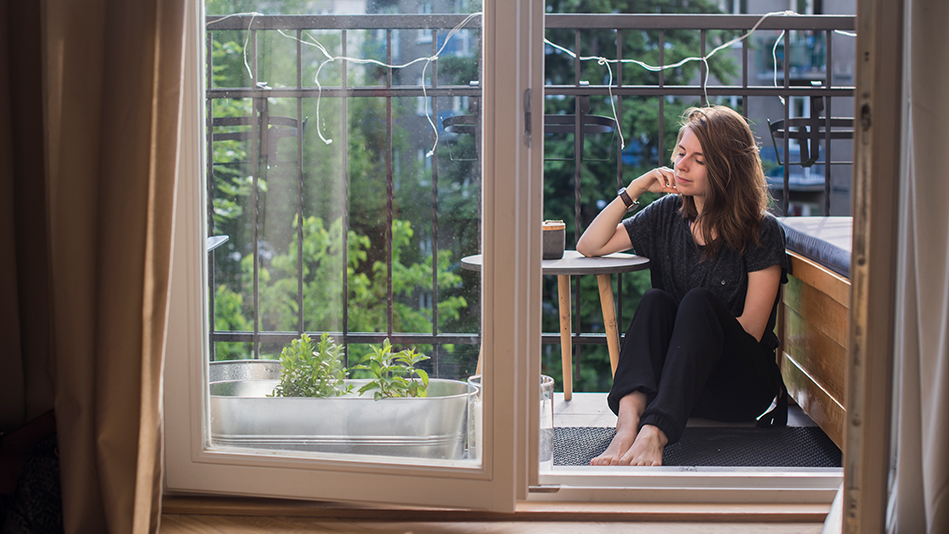How to Embrace the Present Moment
Now that Meghan O'Rourke has begun to follow her mother's example, she's giving as much as she's gained.

Photo: Iryna Yeroshko/Getty Images
Like many people, I am held in the grip of contradictory desires. I want serenity in my day-to-day life, yet I'm obsessive enough about the smallest details that a moment of calm is hard to find. In my 20s, I worked as if focus could be some kind of salvation, endlessly worrying about my next project and missing family gatherings and forgetting to buy Christmas presents in the process. Once, when I managed to make it home for a visit, my mother, who had her bird-watching books out, put her hand on my arm and said, "I don't want you just to go from hill to hill, Meg. You should stop to enjoy the view."
After my mother died, at the age of 55, I thought a lot about what she'd said, and I came to realize she'd given me an important gift: her presence. As my father put it one night when we were talking, "Your mother just had a way of being there, and it made everything better." Listening to him, I knew I wanted more of that "way of being there" in my own life.
Losing my mother in 2008—as painful as it was—has brought with it a blessing I could not have anticipated. It has led me to realign my sense of focus, my values, my attention. "Lighten up, Meg," my mother liked to say when she saw how easily I became blindsided by anxiety. Now I try to honor her example by learning to relax into the daily chaos, by keeping in mind the majestic strangeness of the world, and the smallness of my place in it. One blustery winter day I found myself thinking, Bitterly cold? Yes—but the way the sun radiates off the new snow on the cars is an urban beauty I've become used to not noticing.
Being present is easier said than done, of course. Presence requires letting go of old habits, complaints, and hang-ups. In my case, it also required recognizing my competitiveness and impatience; I had to step back to notice the ways I am hard on people, judging them when I should just support them, insisting things be done on my punishing schedule. Today I make more time to sit and listen when a friend is troubled by something. I climb fewer hills, refraining from chasing every work opportunity that presents itself, whether that means skipping a conference or deciding I'd rather not travel for two months straight to promote a book.
At this time of year, I'm particularly aware of the importance of presence. As the wreaths come out and the carols start piping over the loudspeakers at the mall, as the Hanukkah lights are ritually lit in the plaza near my home and the air turns crisp with the smell of pine, I think about the fact—easy to acknowledge, hard to live by—that holidays are the time we get to be together. I strive to turn my full attention to family and dear friends, declining party invitations so I can devote myself to the people closest to me. I may not always succeed, but I attempt to invest fully in each moment I spend with them. (I know, even when it comes to letting go, I'm desperate to do a good job! But I'm learning.)
My mother was a great gift giver, at once thoughtful and sly (one year she put little bottles of 5-hour Energy in my stocking). But her greatest gift remains the way she approached life; she didn't let anything frazzle her to the point where she didn't have time to listen and laugh with us. Sometimes I picture her face and feel the sting of loss, but then sorrow blossoms into the lightness of knowing how much she gave me. A joy spreads like sunlight returning, and it's as if I can hear her saying, "Lighten up, Meg." Finally, I know what she meant.
Meghan O'Rourke is an American nonfiction writer, poet, critic and editor of The Yale Review. Her forthcoming book, Invisible Kingdom: Reimagining Chronic Illness, will debut in March 2022.



